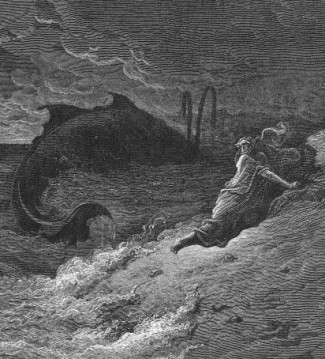
On Yom Kippur(im) – the Jewish day of atonement that is observed today – the entire biblical book of Jonah is read, among other biblical readings.
Jonah is a prophet who attempts fleeing from his service to God not because he does not revere the heavenly God “who made both sea and land” but because he disagrees with God’s modus operandi of availing sinners – the whole huge city of Nineveh – with an opportunity to cease and desist from their wrongful ways and be spared from punishment.
Jonah – unlike God – believes the sinful must be punished rather than first being alerted of their impending calamity and given a chance to reform themselves to avert it. Yet three days and nights in the belly of a big fish – whether we understand this incredible experience literally or figuratively – convince Jonah to carry on with his divine mission of first warning the Ninevites though he knows which course of action they would choose.
Indeed, the Ninevites, beginning with their king, “get” it promptly. Yet it was not their expression of remorse over their skewed ways – fasting, wearing sackclothes and crying unto God – that brought God to forgive them and to do away with His intended retribution; sentiments and rituals do not go all the way to secure divine forgiveness. The book of Jonah is very telling when stressing that only after God saw the peoples’ “turn[ing] back from their evil ways and from the injustice of which they [were] guilty” did God relent from the idea to punish them.
The message is clear: a change in (mis)behavior is possible and feasible, but without effective personal reformation mere rituals of remorse would not secure God’s atonement and forgiveness. One could earn divine forgiveness only by real actions towards this goal for God’s foremost interest is not in people “being good” to Him as much as to other fellow human beings.
Yossi Feintuch is the rabbi of Congregation Beth Shalom in Columbia and has taught classes in the religious studies department of the University of Missouri. He writes for ColumbiaFAVS.com.






